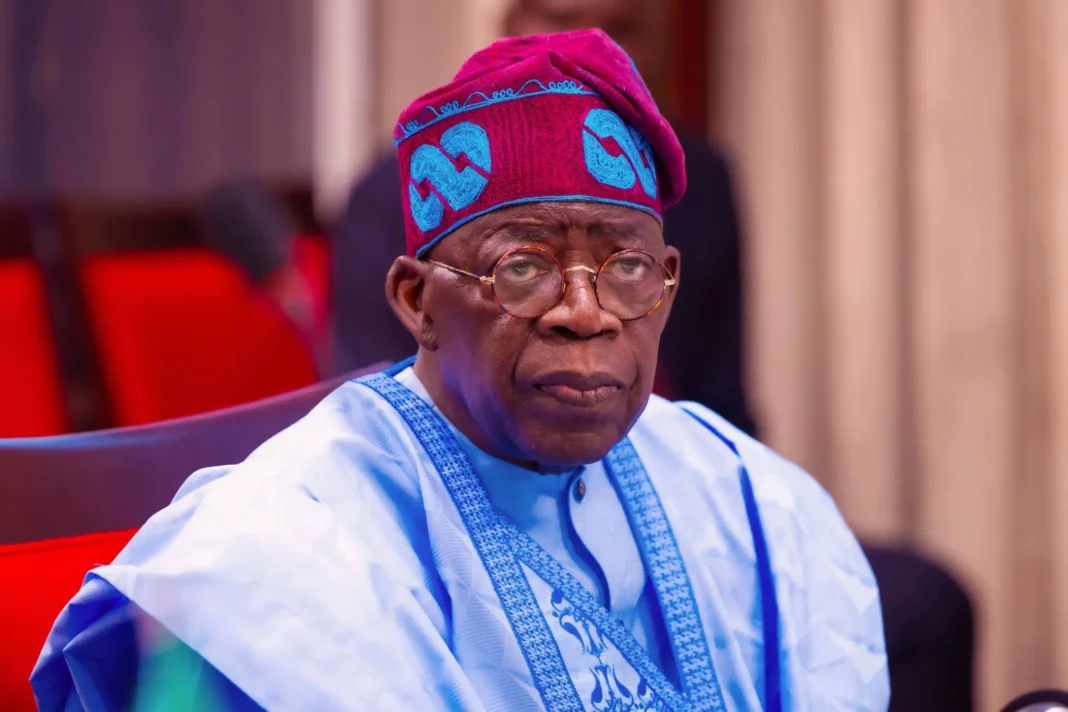Former Governor of Jigawa State, Sule Lamido, has accused President Bola Ahmed Tinubu of initially supporting the annulment of the historic June 12, 1993, presidential election before later aligning with the pro-democracy movement that fought for Nigeria’s return to civilian rule.
TJ News Nigeria reports that Lamido’s statement challenges President Tinubu’s widely promoted narrative of his role in Nigeria’s democratic journey, particularly in relation to June 12, the day set aside to honor the late Moshood Kashimawo Abiola and Nigeria’s democratic struggle.
Lamido’s Accusations Against Tinubu
According to Lamido, President Tinubu was actively supportive of General Ibrahim Babangida’s annulment of the election that was adjudged to be the freest and fairest in Nigeria’s history.
“Tinubu was part of those who supported IBB’s annulment of the June 12 election. His own mother, Hajia Mogaji, was organizing Lagos market women to pledge support to Babangida in Abuja,” Lamido stated.
He went further to claim that Tinubu’s rise to national prominence only became visible during the Sani Abacha era, when NADECO (National Democratic Coalition) was formed.
“NADECO was established primarily to fight against Abacha’s dictatorship, not to reverse the annulment of June 12. Tinubu’s role, therefore, came much later,” he added.
This statement appears to counter the dramatized version of events President Tinubu gave during his recent Democracy Day broadcast, which painted him as one of the champions of the pro-June 12 struggle.
Public Criticism Surrounding Tinubu’s Leadership
The former Jigawa governor’s remarks add to the growing criticism of Tinubu’s leadership in recent weeks. Public outrage erupted after children in Kaduna were reportedly forced to stand in the rain to welcome the President during his official visit, sparking condemnation across social and mainstream media platforms.
Similarly, Tinubu’s comment during his response to the Benue massacre ignited further criticism, with many Nigerians describing his remarks as insensitive to the suffering of affected families.
Peter Obi has also weighed in, accusing Tinubu of lacking key leadership qualities needed to govern Nigeria, particularly in times of national tragedy.
Tinubu Was Part of Those Who Supported Babangida's June 12 Annulment – Lamido
I feel highly entertained by Tinubu's rhetoric, the way he's dramatising his role in Nigeria's democracy. Tinubu became relevant and noticeable after Abacha took over the government; before then, he… pic.twitter.com/4Y17DNgWA3
— ARISE NEWS (@ARISEtv) June 21, 2025
Controversy Over Tinubu’s Democratic Credentials
Lamido’s claims have reignited the debate over Tinubu’s actual role in Nigeria’s democratic evolution. While supporters of the President argue that his contributions, particularly during the Abacha era, were significant and courageous, critics maintain that the President has embellished his participation in the historic struggle for personal political gain.
Adding to the recent controversies, security challenges surfaced when an APC supporter breached security at one of Tinubu’s official engagements, further fueling public discourse about governance under his leadership.
Nigeria’s Political Turmoil Amid Global Crises
These domestic tensions coincide with escalating global security concerns. In a dramatic development, the United States launched strikes on three major Iranian nuclear facilities, sparking fears of wider conflict in the Middle East. The intersection of national unrest and global instability has placed Nigeria’s leadership under even greater scrutiny.
Why Lamido’s Allegations Matter
Sule Lamido is not an insignificant voice in Nigerian politics. As a former Foreign Affairs Minister and two-term governor, his knowledge of Nigeria’s political landscape—especially of events surrounding June 12 and the military era—lends weight to his claims.
Lamido’s criticism may not drastically alter Tinubu’s political standing, particularly among loyalists in the Southwest, but it underscores the ongoing struggle over Nigeria’s political history and who gets credit for its democratic milestones.
With growing public discontent, especially over economic challenges, insecurity, and governance style, many Nigerians are beginning to reassess the true contributions of some political figures, including those who now occupy top positions.
TJ News Nigeria will continue to provide factual, balanced, and up-to-date reporting as developments unfold.






